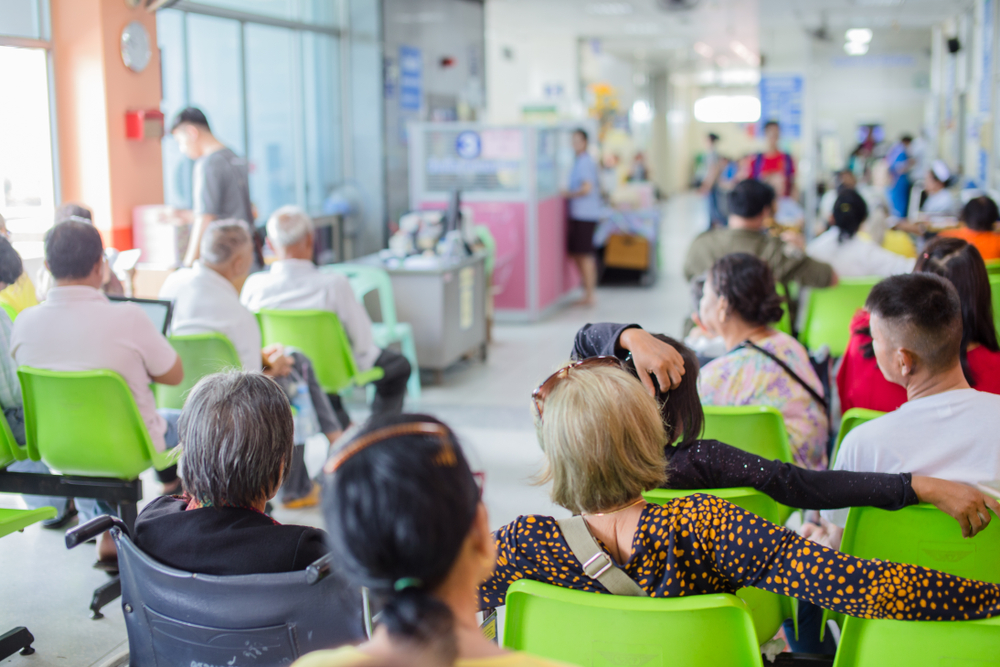HDR UK weekly COVID-19 Round-Up
28 May 2020
Our weekly updates highlight the range of projects members of the HDR UK community are working on to address the COVID-19 pandemic and global challenge. Read on to find out about the latest projects and areas of work.
Read our latest SAGE Report (27 May 2020)
Updates
How data from swab and antibody testing can be used further
Following a recent pre-print paper, one of our key recommendations to SAGE this week outlines the need to ensure coordination and cooperation across a range of organisations so that data from all swab and antibody testing programmes can be securely linked and used for further research.
This particular pre-print paper examined data from asymptomatic (have the disease but are not showing symptoms) healthcare workers who were tested for the infection and for COVID-19 antibodies in their blood. This would help determine if they have immunity to the infectious disease. Amongst the key findings from the research team was a variation in seroconversion rates (period in which the antibody develops and is detectable in the blood) amongst those who were asymptomatic. Other findings discovered the seroconversion rates were dependent on the departments and role the person had – findings that could help inform occupational health practices and guidance on infection control.
Find out more about the research study
A need to enhance data capture in care homes
There have been a number of research projects exploring the impact of COVID-19 on care home patients but more data is needed to help move this forward. There are several characteristics that are recorded in routine data but information on whether individuals live in care homes is not as reliably recorded. Researchers are working to increase the sensitivity of an algorithm that uses address matching and core health data to better identify the population who are in care homes. The aim is that insights from this data will provide a greater insight into health needs of people in this vulnerable group.
Find out more about the algorithm
Susceptibility and transmission of COVID-19 in children
With growing evidence of the differences in how COVID-19 affects children compared to adults, a group of researchers carried out a systematic review and meta-analysis into this area of work. The initial findings found that children and young people do in fact have a lower susceptibility to COVID-19 – 56% lower than adults. However, there is limited evidence that children and young people play a reduced role in the transmission of the infectious disease.
Find out more in the pre-print
Health Data Science in the COVID-19 Era – HDR UK ‘One Institute’ Conference 2020
Our event on Tuesday 16 June 2020 will shine a light on health data science in the COVID-19 era as we come together and showcase new research findings and exchange international experiences related to the COVID-19 pandemic. With a packed agenda you’ll be able to get involved with a whole range of sessions around COVID-19 alongside panellists and speakers from across the health data world.
The conference is open to scientists, researchers, technologists, front-line clinicians, patients and the public, and data custodians who are involved and interested in the urgent insights needed to respond to COVID-19.
Tweet of the Week
It’s time to highlight the ‘Tweet of the Week’ which could showcase a new piece of research, a new area of work or an interesting blog. This week goes to the research study ‘Children of the 90s’ who recently presented their research findings on the impact of COVID-19 on mental health – they’ll be sharing their paper soon so watch this space!
1. Earlier today, our researchers presented their initial findings about how #COVID19 is having an impact on our #mentalhealth to @PHE_uk and @HDR_UK - huge thanks to all our participants who made this possible by taking part in our recent questionnaire #MentalHealthAwarenessWeek pic.twitter.com/YE1iaMV5HW
— Children of the 90s (@CO90s) May 22, 2020
More information and tools
1. Submit your research question or project – we are calling on anyone with a research question for COVID-19 that requires health data to share your ideas via our online form.
Questions will be shared in our HDR UK COVID-19 Knowledge + Skills Matchmaker. We prioritise all of the questions using a transparent and objective process to identify the questions that most urgently need to access to data. Progress of the prioritised questions is reported weekly to the government’s Scientific Advisory Group for Emergencies (SAGE).
2. HDR UK GitHub repository – The HDR UK community is developing computer-based tools and methodologies to analyse and handle health data, including those that can help overcome the COVID-19 challenge. These are all shared in a central repository, which is open to the public, so that we can all learn from each other and build on each other’s work. They are shared in HDR UK’s area of GitHub
3. COVID-19 Slack channels – researchers and innovators looking to collaborate to use health data to address the pandemic can apply to join our dedicated Slack channels. Complete the form to register your interest in joining here.
4. Take a look at our Skills + Knowledge Matchmaker to see a full list of COVID-19 ongoing projects, or visit COVID-19 page to see the latest version of HDR UK’s strategy to support efforts to tackle the pandemic.



